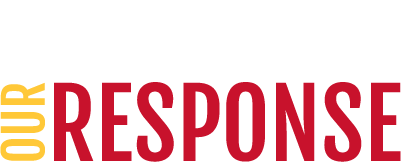

In 2019, the Regrounding our Response initiative launched a training series resulting in over 100 Master Presenters across the state committed to teaching five core concepts. The Center for Harm Reduction Services worked with subject matter experts to develop presentations grounded in evidence and focused on providing an overview of key public health concepts. All five concepts are crucial to reducing the stigma around substance use and raising awareness about evidence-based approaches to Maryland's overdose crisis. Presentation topics include Stages of Change, Adverse Childhood Experiences, Social Determinants of Health, Medications for Addiction Treatment (MAT) as Overdose Prevention, and the Drug User Health Framework.
The presentation series seeks to address common misunderstandings about substance use and to answer questions vital to responding effectively to the overdose crisis: Why are communities impacted differently by the overdose crisis? What is the connection between trauma and substance use? How does behavior change, and how can we support people in their progress? What are the most effective evidence-based tools to prevent overdose death? And why do we need to build comprehensive systems of care for people who use drugs?
A brief overview of each presentation is listed below.
All Regrounding Our Response presentations are available for free in your community. Challenging and reducing stigma can happen at the individual, organizational and community level. To learn more and schedule a presentation for your organization or in your community, please email The Maryland Department of Health's Center for Harm Reduction Services and Regrounding our Response Team.
Email UsIdentify social determinants of health and how drug policy impacts health, and discuss upstream and downstream approaches to the overdose crisis.


Learn how toxic stress changes the physiology of early brain development, recognize the connection between substance use and trauma, discuss protective factors and how to build resilient, self-healing communities.
Understand how intentional behavior change happens, how to support people through the processes of change, and the importance of providing interventions that are appropriate for the stage each person is in.


Understand medications for opioid use disorder, and how they can improve lives, review how medications can prevent overdose death, and discuss how stigma creates barriers to effective treatment.
Learn more about how stigma impacts health, review key harm reduction strategies and protective factors for infectious disease, and how to apply a drug user health framework in your organization.
